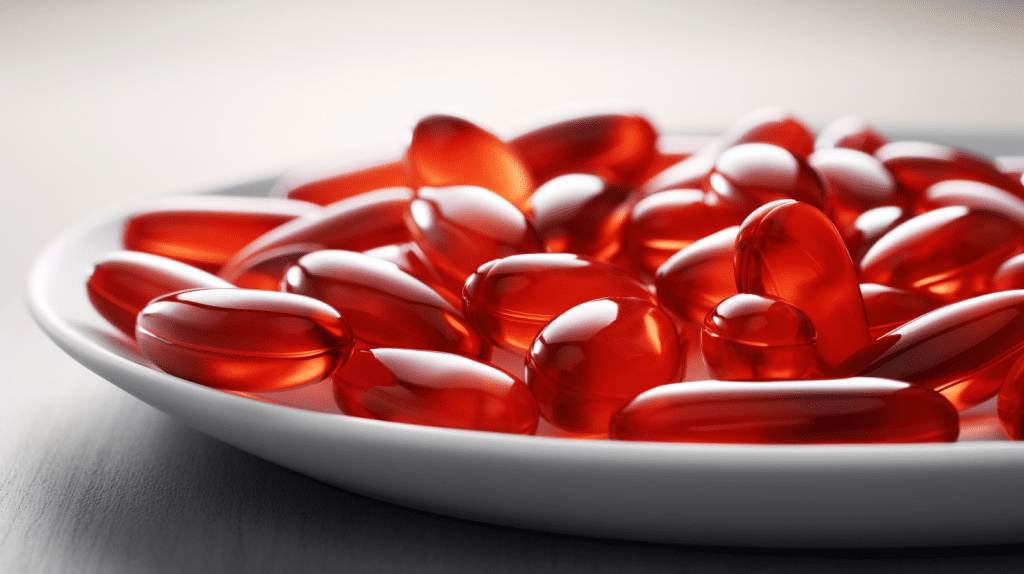Post-traumatic stress disorder (PTSD) can cause severe and debilitating mental symptoms, including memory loss. Fortunately, certain evidence-based strategies can enhance memory recall, reduce cognitive impairment, and foster mental resilience in the aftermath of PTSD. Learn more about the connection between PTSD and memory loss, and how those affected can rebuild their cognitive function.
You May Also Like:
Fight Brain Fog with Omega-3, the Ultimate Nootropic
Can Suppressing Emotions Cause Memory Loss? The Serious & Surprising News
Rebuild Cognitive Function After PTSD and Memory Loss: 5 Practical Approaches to Mental Clarity is an original (LimitlessMindNews) article.
Taking back life from PTSD
If you’ve ever seen combat, been in a severe accident, been the victim of violence, or been involved in any other similarly traumatizing event, you may have experienced post-traumatic stress disorder (PTSD). This complex mental health condition leaves sufferers dealing with cognitive impairment and other highly distressing, disruptive, and sometimes debilitating symptoms. PTSD and memory loss, for example, go hand in hand. If you suffer from PTSD and memory loss or know someone who does, there’s hope. It comes in the form of evidence-based therapies, medications, and other methods. This article considers five practical strategies, along with dietary supplementation, to help those experiencing PTSD take their lives back.
What is PTSD?
PTSD is a stress disorder caused by a traumatic event. Being directly involved or merely witnessing such events can induce PTSD. The Diagnostic and Statistical Manual of Mental Disorders (DSM-5) outlines a set of criteria that patients must meet to be formally diagnosed with PTSD. According to the manual, events with potential to cause PTSD include:
- Combat exposure
- Sexual assault
- Natural disasters
- Accidents

DSM-5 PTSD symptoms
- Intrusive thoughts – These are defined as unwelcome, involuntary, and frequently distressing ideas, images, or impulses that pop into mind beyond a person’s control. Intrusive thoughts can be extremely vivid, violent, traumatic, or even taboo. They are, however, in no way reflective of a person’s character.
- Flashbacks – These involve reliving scenes from the traumatic event or replaying it from various angles or with different outcomes from what happened in reality. Flashbacks generally include a sense of helplessness and a loss of control. Sufferers may find themselves not only reliving the trauma but caught up in a sense of inadequacy and worthlessness over their inability to change it.
- Nightmares – Bad dreams and sleep disturbances often plague PTSD sufferers, interfering with normal sleep and further exacerbating difficulties with day-to-day functioning.
- Reminder avoidance – Many PTSD sufferers take special precautions to avoid reminders or places that trigger event memories and flashbacks. This symptom ranges from mild to debilitating, causing disruptions to a person’s social interactions and daily functioning.
- Memory loss – PTSD and memory loss are commonly linked. The impairment can range from mild to severe.
- Changes in mood or cognition – Negative changes to a sufferer’s normal personality and disposition frequently occur in PTSD, especially in severe cases. These changes can be pronounced enough to make the sufferer’s personality seem like that of a different person compared to pre-event.
- Symptom persistence – Per DSM-5 criteria, PTSD symptoms must persist for a minimum of one month for an official diagnosis.
Inside the PTSD brain
Extremely traumatic events trigger the body’s “fight or flight” mechanism, wherein stress hormones – especially cortisol – hit the brain in an uncontrolled flood. In PTSD, the fight or flight response happens in a situation over which the sufferer has little or no control. The body’s normal cortisol regulation breaks down, causing it to run rampant.
PTSD is treatable
With proper care, many sufferers experience relief. The long-term prognosis varies depending on factors such as trauma severity, symptom duration, and access to support and treatment. However, regardless of PTSD severity, most sufferers can get better.
Five strategies for treating and managing PTSD
- Therapy – Cognitive behavioral therapy (CBT) is a widely-used, proven PTSD treatment. CBT teaches PTSD sufferers to identify and modify unconstructive thought patterns. It incorporates adaptive strategies for coping with and managing intrusive thoughts and flashbacks.
- Stress reduction – Stress often triggers PTSD episodes, so learning to manage and channel it in healthy ways can be critical. To achieve this, many sufferers practice mindfulness and engage in activities like meditation and journaling. These activities encourage practitioners to exist in the present without regard to the past or the future, which can be extremely beneficial in many ways, especially in regard to PTSD and memory loss.
- Exercise – Regular physical activity is proven to be extremely beneficial to overall health. It positively impacts memory, mood, cognition, and stress. Exercise increases blood flow to the brain and triggers the release of neuroprotective, mood-enhancing hormones, especially endorphins.
- Nutrition – PTSD sufferers can more effectively manage this condition by being more mindful of what they put into their bodies. Omega-3 fatty acids like those in oily fish and certain supplements – especially krill oil – have been extensively studied for cognitive benefits and overall brain health, demonstrating potential for significant enhancement and protection. A 2019 study in the journal Biomolecules even concluded that “Omega-3 fatty acids prevent post-traumatic stress disorder-induced memory impairment.” Antioxidants, including vitamins A, C, E, astaxanthin, choline, and many others provide additional support to cognitive function and overall brain health.
- Social support – PTSD is, by its very nature, socially isolating. It commonly drives sufferers to withdraw out of shame, embarrassment, or anxiety. This is the opposite of what PTSD sufferers need. They should instead try to build and maintain strong social connections and seek support from family, friends, and colleagues. Joining a support group can also be immensely beneficial, reminding sufferers they’re not as isolated and alone as they so often feel.

The power of PTSD supplementation
Dietary supplementation can be a pillar supporting other therapeutic measures for PTSD such as stress reduction, therapy, and exercise. The question is: what supplements should you take? What ingredients, brands, and specific products are right for you?
As mentioned, omega-3 supplementation can be a powerful addition to any overall PTSD treatment plan. In addition to the previous study cited, another suggested that immediate omega-3 fatty acid supplementation after a traumatic injury may potentially reduce any PTSD symptoms related to the accident.
Choline is another potentially potent addition to a PTSD-driven diet. Add in the ancient adaptogenic compound ashwagandha, and you’ve got a powerful internal support system for battling PTSD and improving overall brain health. Ashwagandha contains many potent antioxidants, the most important of which are called withanolides. Studies suggest this compound can have positive impacts on anxiety and stress. Ashwagandha is also shown to promote healthier sleep. Other studies suggest ashwagandha reduces cortisol levels in the body, a critical symptom in PTSD sufferers.
If you’re looking for supplemental support for PTSD and memory loss, getting these powerful ingredients in a single product is ideal. Kori Krill Oil Stress & Body Ashwagandha + Omega-3 fits the bill. In addition to ashwagandha and omega-3, its ingredient list also includes choline and naturally occurring phospholipids that promote superior omega-3 absorption.
Don’t let PTSD define you
PTSD can be a traumatic roller-coaster ride that takes a toll on cognitive function, mood, social connectivity, and memory. However, sufferers are not without hope. Through a holistic approach that includes therapy, stress reduction, exercise, social support, and supplementation, PTSD sufferers can take their lives back. Never give up, never stop working to get better, and never stop seeking human contact and support. With the right strategies and approach, you can achieve a break from PTSD cloud cover to once again relax in the sunshine of positive mental health.

For further research:
Very Well Health – Causes and Treatment of PTSD Nightmares
Psychiatric Times – 28 Healthy Ways of Managing PTSD
Neuroscience News – Nutritional Supplements Could Help Treat PTSD
National Library of Medicine – Management of nightmares in patients with posttraumatic stress disorder: current perspectives
Important Note: The information contained in this article is for general informational purposes only, and should not be construed as health or medical advice, nor is it intended to diagnose, prevent, treat, or cure any disease or health condition. Before embarking on any diet, fitness regimen, or program of nutritional supplementation, it is advisable to consult your healthcare professional in order to determine its safety and probable efficacy in terms of your individual state of health.
Regarding Nutritional Supplements Or Other Non-Prescription Health Products: If any nutritional supplements or other non-prescription health products are mentioned in the foregoing article, any claims or statements made about them have not been evaluated by the U.S. Food and Drug Administration, and such nutritional supplements or other health products are not intended to diagnose, treat, cure, or prevent any disease.